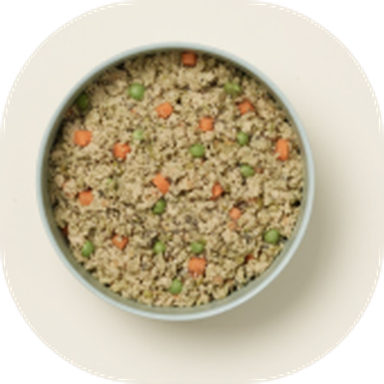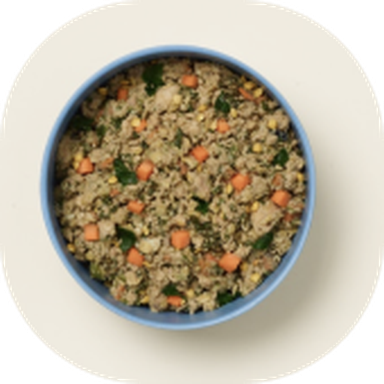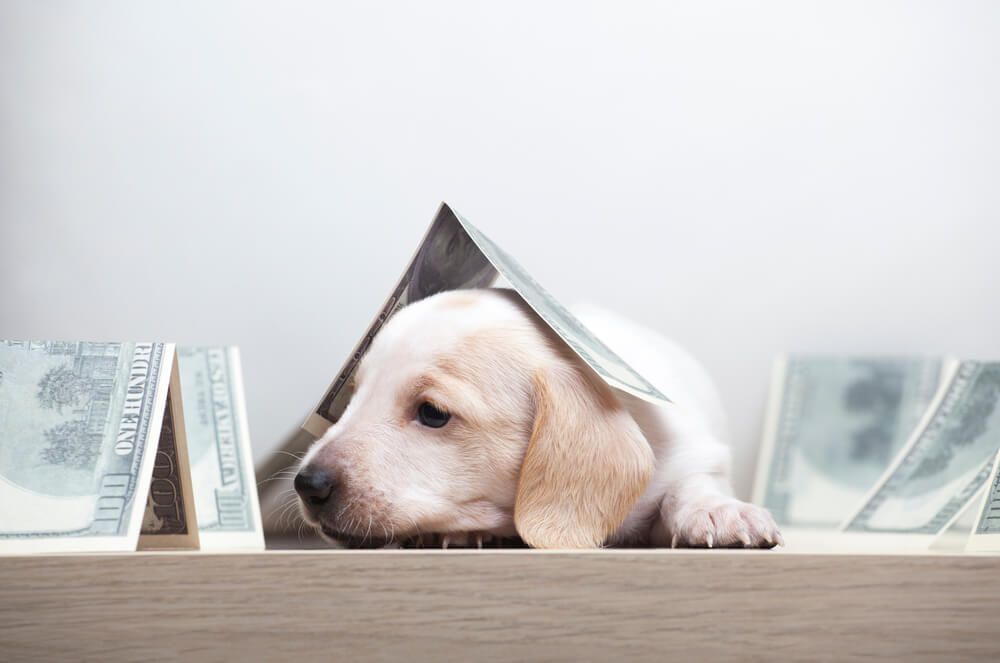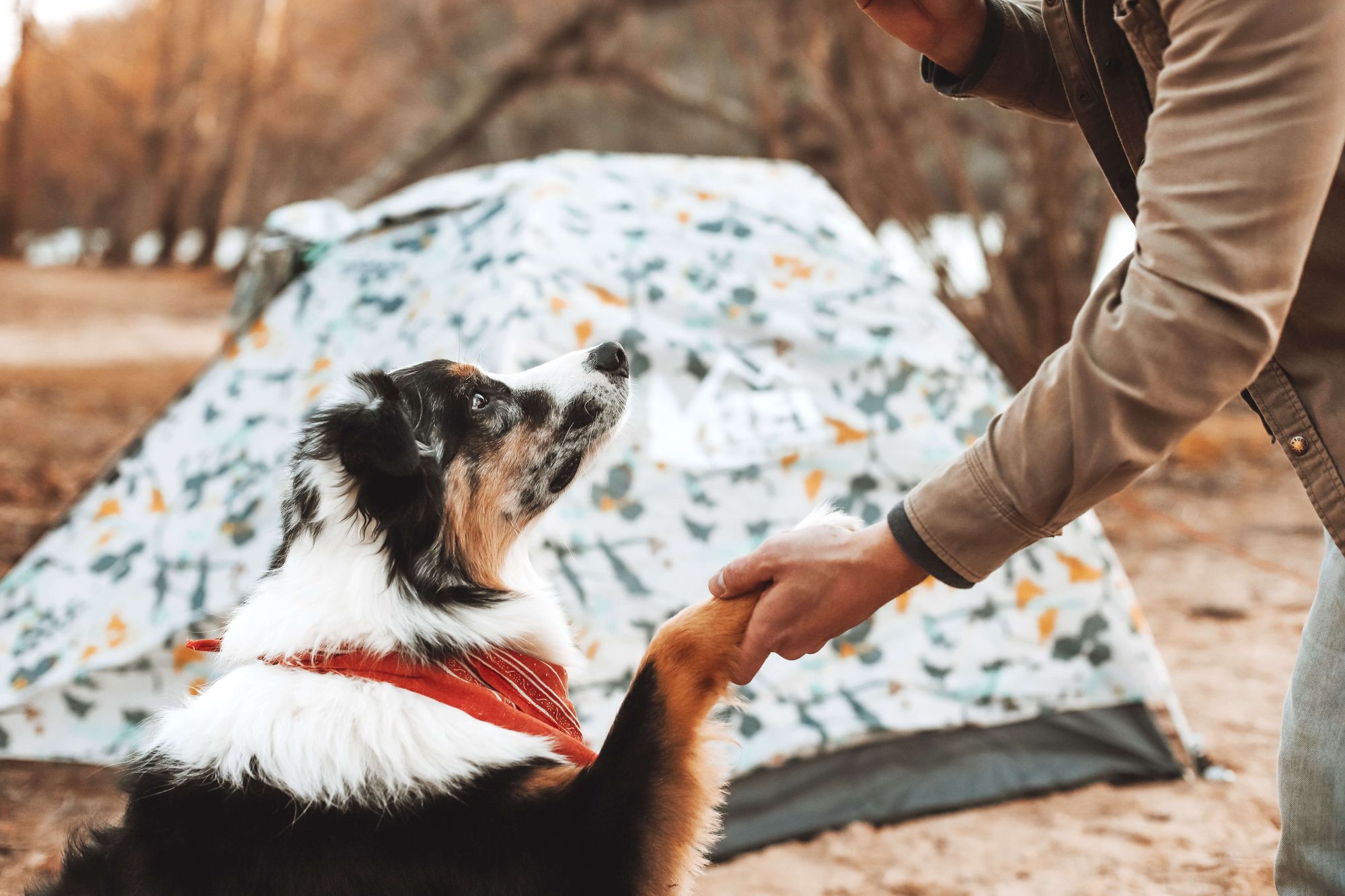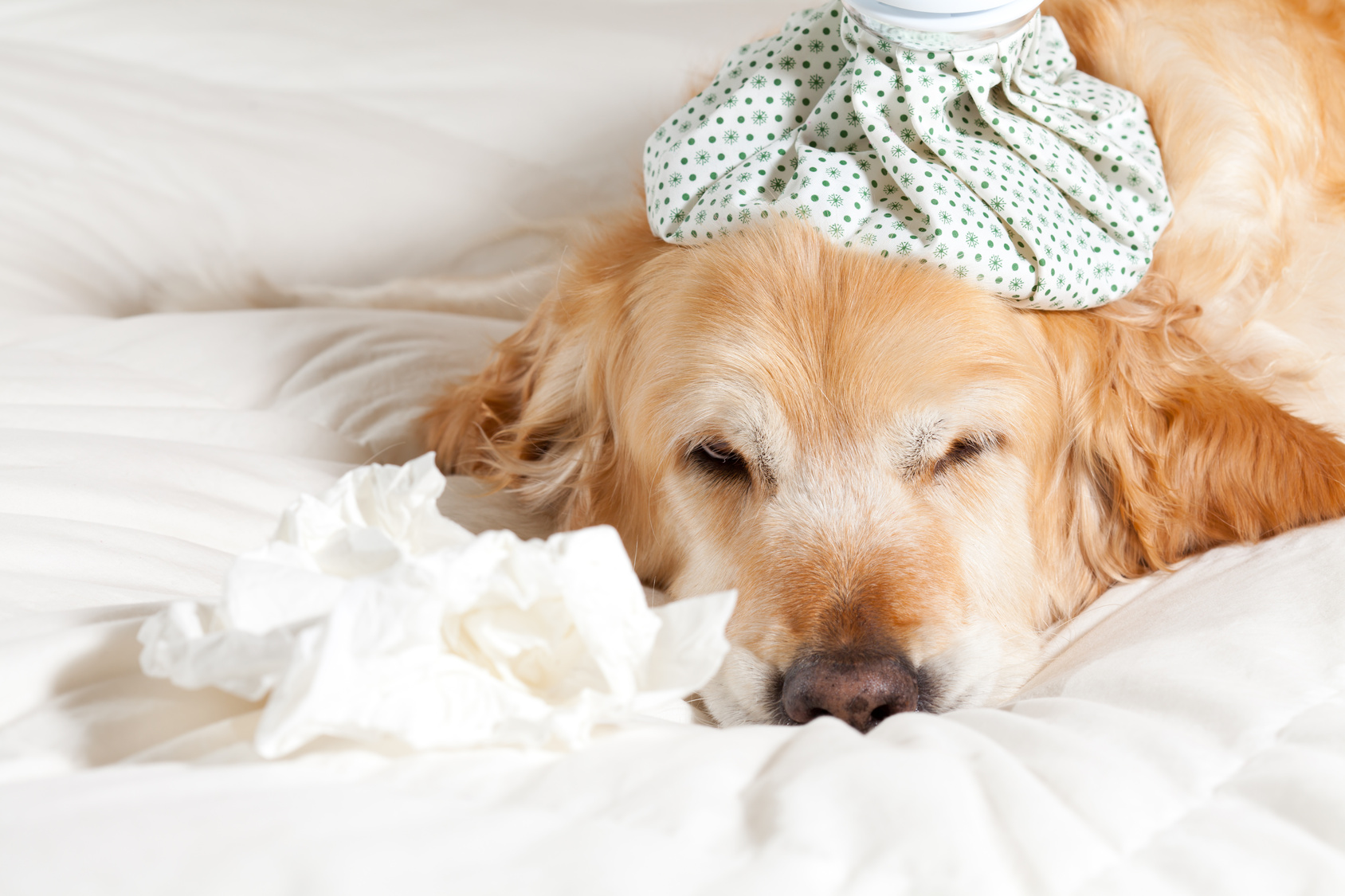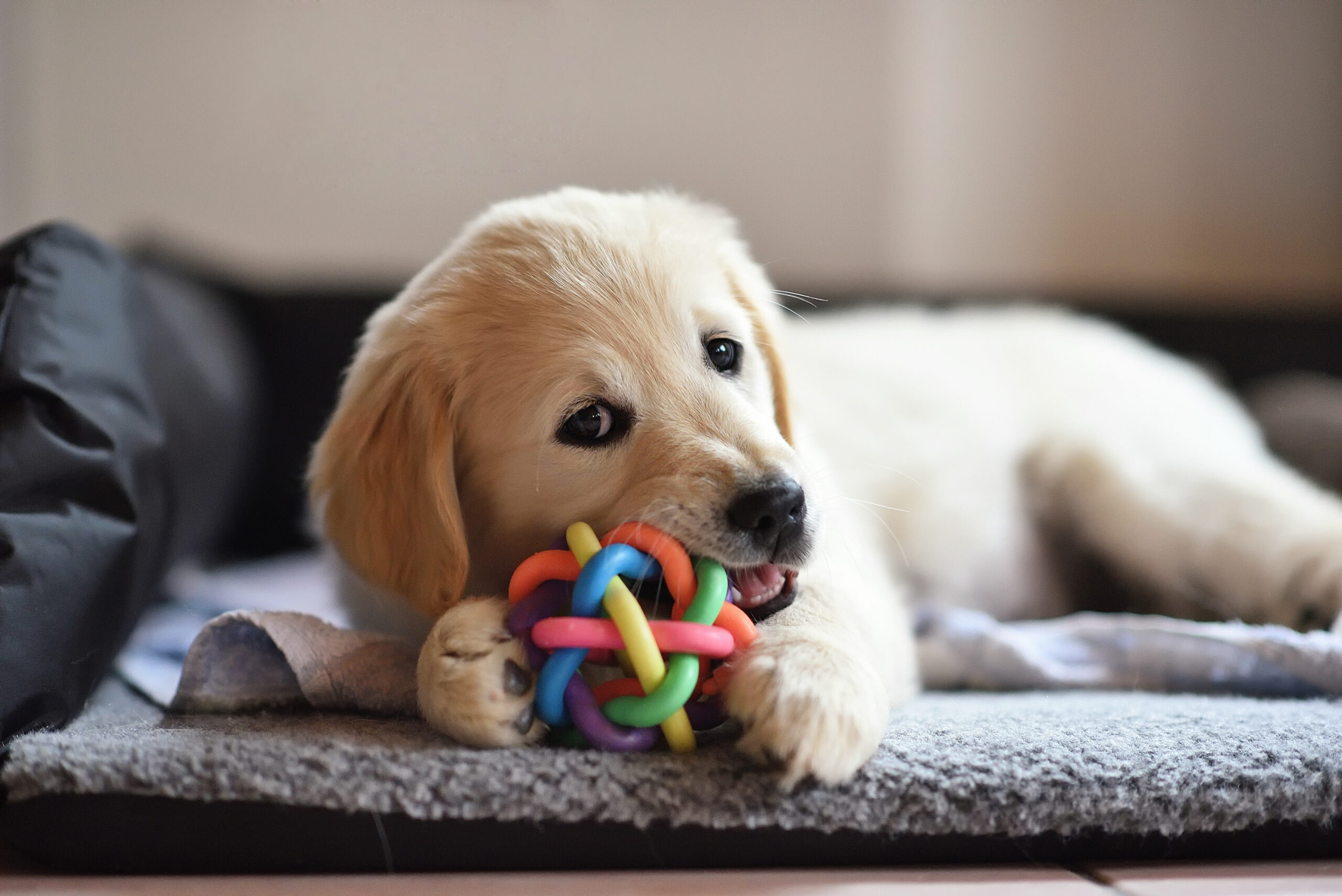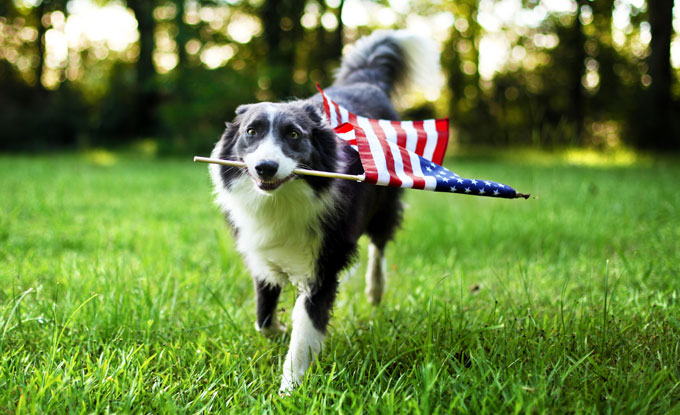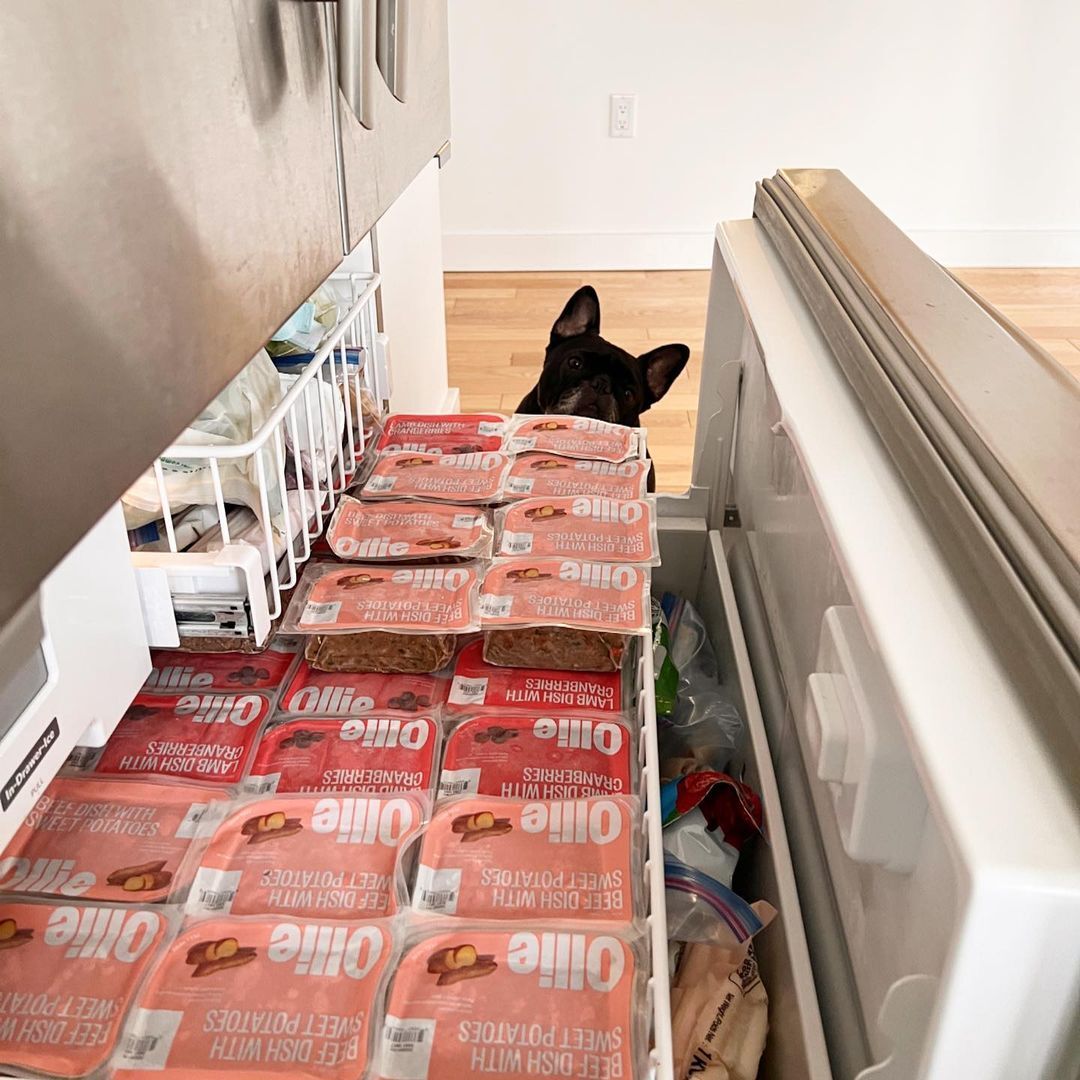Hey Ollie blog readers! We’re offering you an exclusive 60% OFF your starter box! Try now!
You are thinking about getting a dog but wondering how much money it will take to get and take care of one? We’ve broken down all of the costs from supplies to healthcare so you can understand how much money you should have saved before bringing a dog home.

What does a dog cost?
Unless you’re getting a puppy as a gift, you will likely need to spend some cash.
Buying a dog from a reputable breeder should set you back $900 to over $5,000 depending on many factors including the dog’s breed and pedigree. You can expect to pay less for puppies that are not show dog quality. This could be for many reasons including color, markings, or size that doesn’t conform to the breed standard. If you are purchasing the dog as a pet these things are most likely not relevant to you anyway. Note that buying a dog from a reputable breeder probably means you are responsible for paying for the dog’s spay or neuter surgery which can be a pretty big bill at a private vet’s office. Some shelters or rescues may host low-cost clinics so that you can get your new pet spayed or neutered for less.
If you are getting your pup from a shelter, costs can vary based on the dog’s age and breed. Puppies are generally the most expensive with adoption fees ranging from $250 – $450. Dogs over one year of age are usually significantly less expensive with fees ranging from $75-$150. In some cases, special events like Clear The Shelter days or adoption fairs may offer pets with adoption fees waived or sponsored by a company, foundation, or some type of grant. Adoption fees often include most if not all vaccines and spay or neuter surgery.
Depending on where you live, you will have to pay for a dog license. The licensing costs around $20.
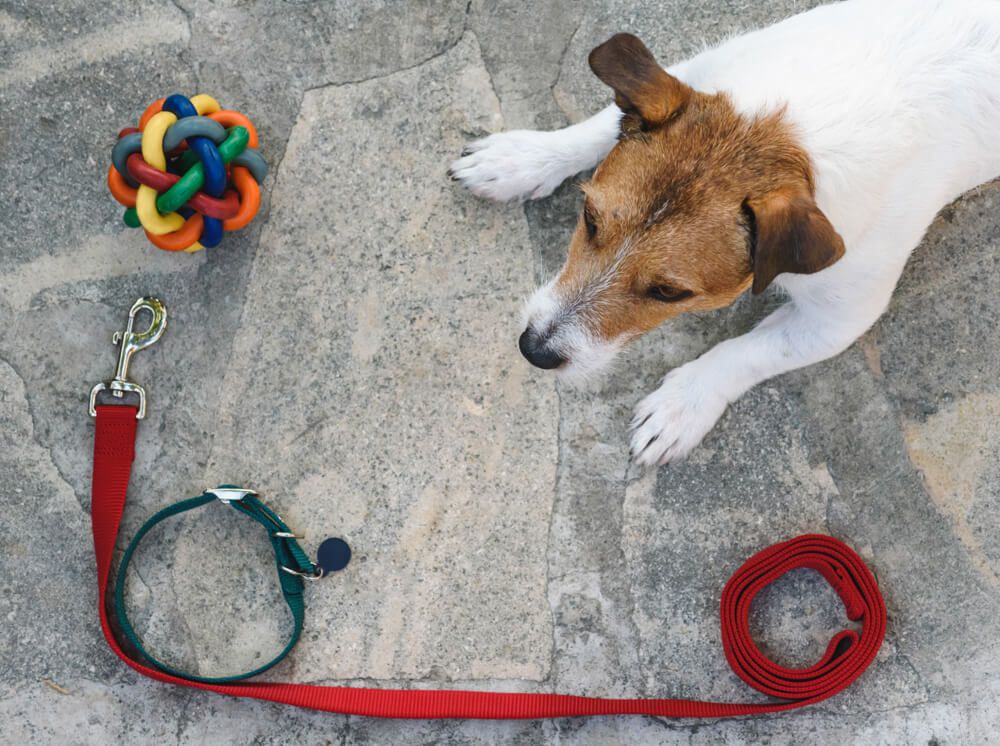
What supplies do I need for my dog and how much should I expect to spend?
A basic collar
You will want your pup to have at least a basic (flat) collar with a D-ring to clip ID tags to. These collars can run from very basic to custom designs. At a minimum, you will spend about $5-10 on a collar. You may need to buy a few sizes if you start with a younger puppy. To minimize the number of collars you need to buy, purchase an adjustable collar in the largest size you can safely fit on your puppy. If a small collar runs 12-16 inches and a medium runs 14-18 inches and your pup has a 14-inch neck, purchase the medium and start with it on the smallest setting instead of getting the small this will help the collar last longer as your puppy grows. For an adult dog, if you buy a nylon collar, you will need to replace as it gets worn. While leather collars are significantly more expensive, they may last your pup’s entire life and then some!
ID Tags
You will want an ID tag to attach to your dog’s collar. This ID should clearly state your dog’s name, your name and phone number and could also include your address or the phone number for your vet. The reason you need this tag is to increase the chances of being reunited with your dog should they ever run away or be separated from you. The rescue or your vet clinic may also give you a tag that proves your dog’s rabies vaccines are up to date. Keeping this tag on your dog’s collar is a good idea. A third tag you may want to add to your pup’s jewelry collection is their dog license number tag. While you can have this number added to your pup’s ID, you may also be given a tag from the licensing organization. In addition to a microchip, these tags are very important in identifying your dog.
A leash
In most areas, dogs are subject to leash laws. Many of these laws require a six-foot leash. Like collars, leashes range from about $10 to about $100 for a quality leather leash. Choose a leash that feels comfortable in your hands. You may also choose to purchase long leashes for areas where they are appropriate. You could purchase a 15 -30-foot leash to use as a training aid to work on your dog’s recall or use when out in an open field so your dog can have some space.
Seatbelt or car seat
If you are planning to take your dog in the car, you will want to restrain them safely for the duration of the car ride. Consider a simple seatbelt or a car seat to keep your pup safe. Seatbelts can be purchased for as little as around $10-$15. Carseats are a slightly pricier purchase, but depending on the size and breed of dog you have and how often you take them in the car, they might be worth the extra money.
Crate
Even if you aren’t planning on crate training your dog, having a crate for emergencies and/or transportation is likely a good idea. Many new puppy owners opt to crate train for safety. This way the puppy has somewhere to go when their family isn’t home or can’t supervise them. You should purchase a crate that will fit your dog when they are fully grown. You can then buy a divider to partition off the crate to the right size for your puppy. You’ll move the partition as your puppy grows until you don’t need it anymore. You can use a crate mat or blanket to line the crate and keep your puppy cozy! The crates run from about $20 – $100 depending on size and style and crate mats can run $10 – $50.
Food and Water bowls
You will want to purchase a set of dishes for your pup. Consider a raised feeder for taller dogs. These will set you back $25-55. Simple dishes can be purchases for $10-20 each. Stainless steel is your best bet as they are easy to clean, lightweight and won’t crack if dropped. Remember that dog dishes can be quite germy so they should be cleaned and dried after meals. Water should be changed a few times a day as needed.
Hairbrush & Nail Clippers
To prevent matting, you will need a hairbrush to keep your pup’s coat tangle-free. You can disregard this item if you have a dog with a flat coat. This doesn’t mean you can skip all grooming tasks, but it does mean regular hair brushing isn’t important. If you plan to trim your pup’s nails at home you should also purchase a good set of nail clippers. Brushes run $5-10 and clippers might cost about $20.
Towels
From getting caught in the rain and muddy paws to regular baths, you will probably want to have a few towels just for your pup. You can use some of your old towels, or purchase some high absorbency towels just for your pup. If you are looking to save cash, Target has some great, absorbent towels that will only set you back $5-10.
Shampoo
You will want to get some shampoo made just for your pup’s sensitive skin. For older dogs, as you learn what their skin needs and be able to purchase shampoo accordingly. Even if you have your pup professionally groomed, it is not a bad idea to keep dog shampoo in the house in case your dog needs an emergency bath. (We will leave the circumstances of this need to your imagination!)
Toys
Whether you have a brand new puppy or an older dog, you will need some toys to keep them entertained. For a new puppy, you will want a few things, toys that squeak, chew toys, and something interactive like a kong or other treat-dispensing toy that can buy you a few moments when your pup is completely occupied. Plan on purchasing safe but inexpensive toys. Puppies can be tough on toys so you probably don’t want to buy those adorable plush toys in the $15-20 range. Shoot for 5-10 toys that you can rotate, so plan on spending $50 to $100. You can look at Marshalls, HomeGoods, TJ Maxx, and chewy.com for some popular and inexpensive toys. If your puppy ends up particularly attached to a specific toy, you might want to try to get a backup!
Dental supplies
The investment in some dental chews or, preferably a toothbrush and some enzymatic toothpaste, about $12 or so will go a long way in preventing your pup from needing an expensive dental cleaning that involves anesthesia and costs a pretty penny. As there are always risks when putting a pup under anesthesia, in addition to saving some cash, you are also helping to keep your pup healthy and avoid unnecessary procedures. Start getting your pup used to having their teeth brushed as soon as your vet gives the okay.
Bed
Even if you do crate train, your pup should still have a bed. This will give them thor own space to relax in. You can teach your pup to relax in their bed while you are eating or if you have guests. If your pup sleeps in their crate or your bed, it is probably okay to skimp on the quality of the bed. If your pup spends a lot of time in their bed, you probably will want to spend a little more and get a higher quality or orthopedic bed. You can find beds for as little as about $20 all the way up to hundreds of dollars. This bed Tfrom Animals Matter has gotten rave reviews (Author’s note: my dog has and loves this bed). If your pup likes to burrow, these cozy caves from Snoozer are a great choice. If your pup is notorious for eating or destroying dog beds, you can also use a human comforter on the floor in lieu of a traditional dog bed.
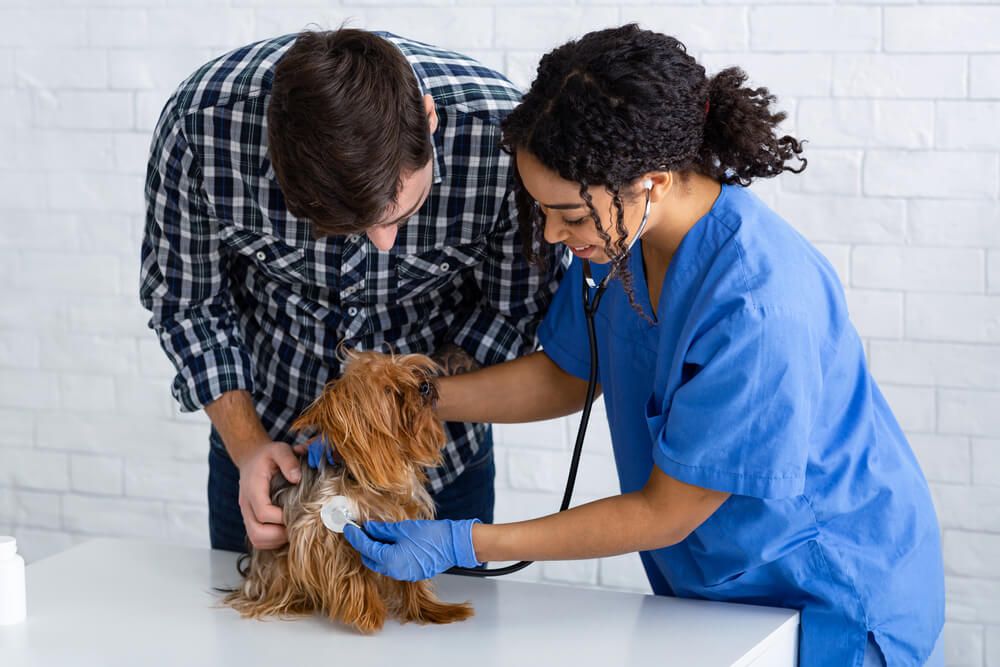
Health and Wellness
Initial vet exam
Depending on where you get your puppy, you may be required to have them examined by your vet within a specified period of time. For a puppy from a breeder it may be within 72 hours of bringing the puppy into your home. If you have adopted from a rescue, it is probably in your best interest to have the dog see your vet ASAP, but if they’re still on a vaccine schedule, it is probably okay to wait until they’re due for their next set of shots. (Usually a week or two after you bring the pup home). This exam will allow your pup to meet your vet, check for any underlying undisclosed medical issues and allow you to ask questions. The cost of this visit may be anywhere between $65 and $200 depending on what your pup needs.
Vaccines
At a minimum, your pup will need to keep up to date with their rabies vaccine. Depending on where you live and your lifestyle your vet may recommend more vaccines for your pet. Most pups also get the distemper combination vaccine. Bordatella and Leptosplerosis vaccines are also commonly recommended. Your pup may also get a flu shot and a Lyme vaccine if that is indicated. The cost for these vaccines can run $100 – $200 per year, depending on how many you need and if you need to make multiple vet appointments. If you are just in for a vaccine, your vet may offer tech only appointments which can save you some money. If you’re on a budget look for a low-cost vaccine clinic run through the SPCA or similar rescue.
Preventatives
Your pup will most likely need some type of preventative for both fleas and ticks and heartworm. There are pills, collars or topical treatments that last from 1-3 months. Discuss the best option for your dog with your vet and make a plan. The average cost for this is $30 – $40 per month. Heartworm can kill your pup, ticks can make both you and your dog sick, and you definitely don’t want fleas in your home so it is important to keep up with your preventatives.
Health insurance
Puppies get sick, accidents happen and illness can come at any time. It makes sense to be prepared with health insurance for your puppy. For a young healthy puppy with no pre-existing conditions, you can expect to pay $550-$900 a year depending on your plan, deductible and reimbursement. Read the fine print carefully and make sure you understand what is and isn’t covered and any obligations you may have under the plan. If your pup should require emergency surgery or get injured you may be glad you are covered. If for whatever reason you decide not to get an insurance policy, it might be worth starting an emergency savings account to cover the cost of any unexpected illness or injuries.
Spay or neuter surgery
If you purchased a puppy or are responsible for the cost of getting them spayed or neutered, plan to spend $50 – $400 for the procedure. You may also need to pay for pain medication to help your pup recover.
Sick/emergency vet visits (on average)
Just like you will inevitably get sick or injured at some point in your life so will your pet. Puppies are especially delicate, so plan for a couple of sick vet visits and make sure you can afford them. If your pup is prone to things like ear infections or attends daycare, you may see the vet on occasion for ear medicine or the occasional scrape. These visits and the corresponding treatments should be covered by your health insurance but you will generally be responsible for the full amount upfront. You then submit your claim for reimbursement. Sick visits can cost between $50 and $100 per visit, not including any x-rays or diagnostic testing. CareCredit is a financing option to help you pay for your pet’s treatment. Chat with your vet proactively about your best option for financing in an emergency.
Annual routine vet care
Even if your pup doesn’t get sick or have any emergencies (knock wood). You will still need to pay for annual wellness checks. After 7 years of age, most dogs see the vet at least twice a year. Your vet may also recommend regular dental cleanings if your pup needs them. Wellness exams can cost $50 -$100 per year and dental cleanings run $600 to $1200 and you can expect to pay an extra $150-$300 if your pup needs dental x-rays. If your pup does have a medical condition, they may need other medications and more frequent appointments. The cost for these can vary. Talk to your vet about treatment options, prognosis, and any budget concerns you may have. Your vet may be able to help you find lower-cost treatment options.
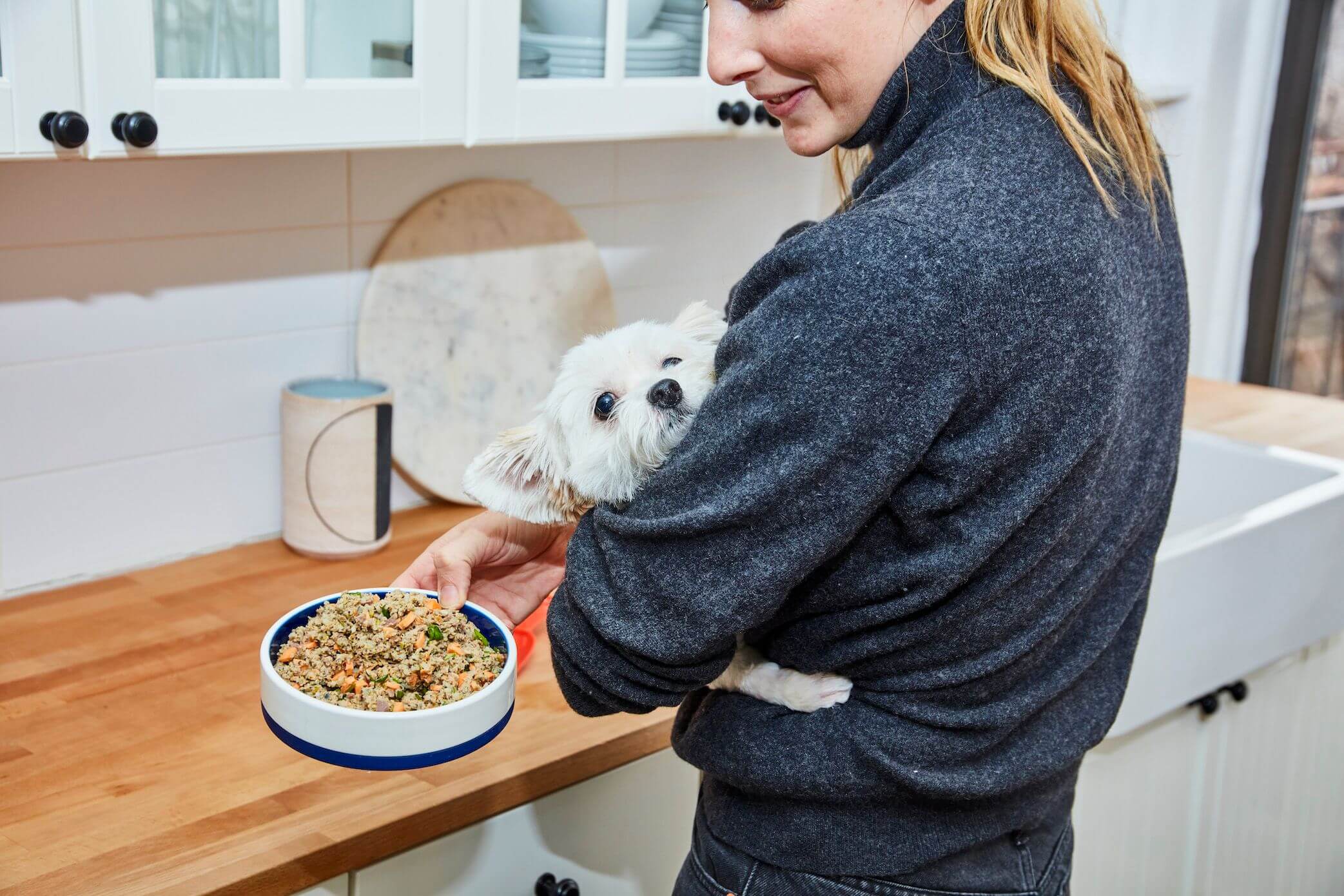
Food and nutrition (and treats!)
Just like eating healthy can prevent you from developing vitamin and mineral deficiencies and chronic health conditions, the same is true for your pet. You want to feed your puppy the highest quality food you can afford. This doesn’t necessarily mean going for the extra protein or exotic meat foods. In fact, some of these so-called, BEG (boutique, exotic, and grain-free) diets have been linked to dilated cardiomyopathy, which can be fatal in dogs.
Here at Ollie, we take food and nutrition seriously. We use high-quality meats, fruits, vegetables, and superfoods to create delicious recipes that are nourishing. We work with veterinary nutritionists to ensure that our food meets your pup’s dietary needs keeping them happy and healthy for their entire life. When it comes to price, we are more expensive than kibble or canned wet food. This is not unlike a grilled chicken salad costing less at McDonald’s then a fancy superfood salad with grilled chicken from SweetGreen. While we know ‘fast food’ is cheaper in the short term, we make up for it in the long term. Obesity, diabetes, and other costly medical conditions are linked to a poor diet. The same is true for your pup. By spending a little more on food, you will save on vet bills in the long run!
Bagged kibble runs about $40 – $80 for a 25-pound bag. A dog eating about 2 cups per day should get about 8 weeks of meals out of a bag, so for kibble, the cost appears to be about $20 to $40 a month. Ollie is priced at about $50 per week for a young, active 45 pound dog or $200 per month. While this is more than double the cost of kibble, many pet parents find that they spend less on supplements and weight management services or vet visits over the lifetime of their pet.
In addition to dog food, you will probably also want to offer your pup some treats. If you are doing a lot of training, you may want to invest in some small training treats. These can run $7-10 per bag. In addition to buying treats, you can use other things you’d find in the grocery store. String cheese, cut up hot dogs, cucumbers, blueberries, peanut butter, cream cheese, spray cheese, and even plain chicken or lean beef work well as training treats. These may also help you keep your pup focused in an environment like puppy kindergarten that can be very distracting.
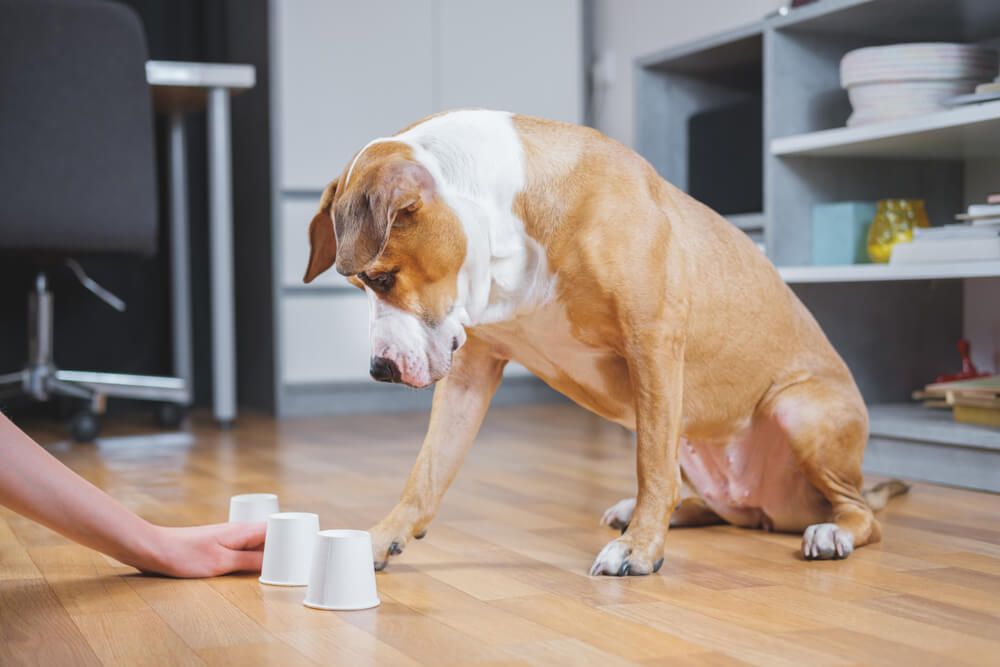
Training
Whether you adopt or purchase a puppy, or adopt an older dog from a shelter, some basic training is a good investment. Puppy kindergarten helps your pup learn basic manners and how to work through distraction. For a rescue, you may also want to invest in some private sessions with a trainer in your home. Group classes generally cost $150-$300 per 4-8 week session and private lessons can cost $100-200 per lesson. Some trainers offer discounts for packages of 5-10 lessons. You can also check with your local shelter, they may offer some group classes at a discount too.
If you decide to continue with training and take advanced obedience classes or want to work towards a canine good citizen designation, therapy dog or trick dog certifications expect to pay $200 -400 for these sessions plus fees to the American Kennel Club and/or the organization you do your therapy certification through. These fees can range from about $30-50.
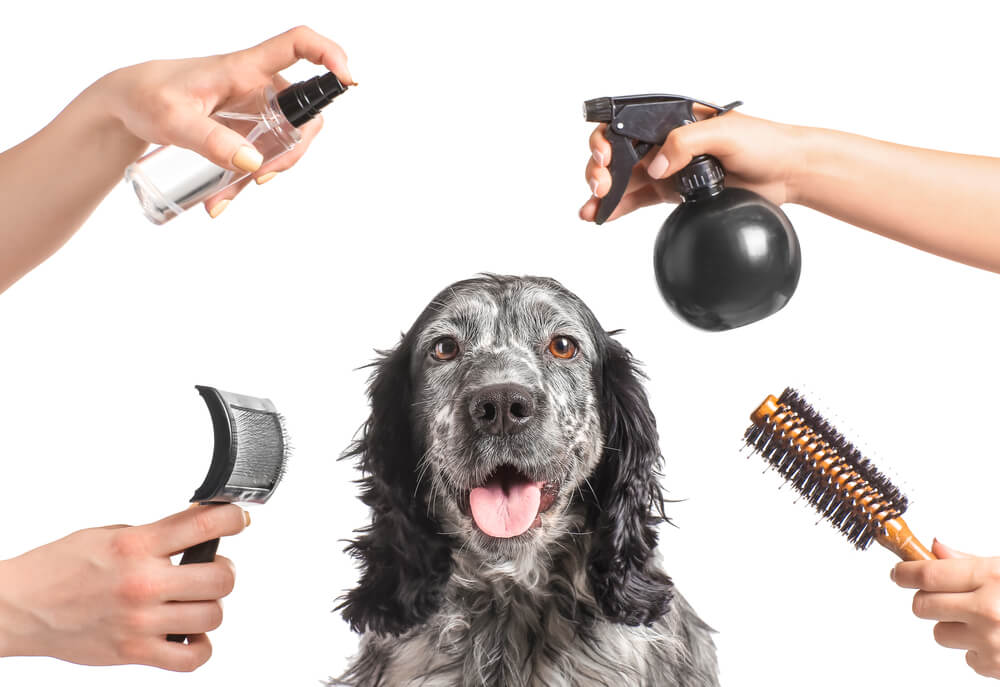
Pet care
If you opt to have your pet professionally groomed, plan to spend between $75 and $125 per grooming (every 4-6 weeks) depending on the services your dog needs. Complicated haircuts, medicated or moisturizing baths, nail trims, ear cleaning, and anal gland expression can make your bill go up quickly. Don’t forget to add a 20 percent tip for your groomer.
Depending on your situation you may need to board your dog, hire a sitter, or use dog walking or daycare services. These are probably some of the more expensive aspects of owning a pet.
If you plan to take a vacation and won’t be road-tripping with your dog, plan to spend about $50 per night or $250-300 for 5 nights in a boarding facility. Some of these facilities charge extra for some special 1:1 time, playtime, and even administering medications. Do your research and ask other local pet owners when looking for a facility that will take the best care of your best friend. Having a sitter come and stay with your pet in your home may also be an option, price wise it will likely be more expensive, plan on $75 per night or so.
Dog walkers usually offer 15, 30, or 60-minute walks. A 15-minute walk is probably enough for a young puppy (who may need 3 of these per day!). Most dogs need about one 30 minute walk if you are able to walk your dog before and after work. These should run about $20 per walk or $100 per week. Some walkers offer packages with a discount for paying for 10 or 20 walks at a time or special packages for younger puppies with a discount for more frequent walks. These packages can still run about $30 per day, so it does add up quickly if you need a walker 5 days a week.
Doggie daycare can be a fun way for your dog to socialize when you are at work or otherwise unable to be with your dog. In order to enroll, your dog will need proof of required vaccines and have to do a meet and greet to make sure they get along with the other dogs. Not every dog loves the group environment of daycare. It can be overstimulating to some pups. If your pup is a good fit, and they are spending their days in daycare plan to spend $30-$40 per day. If you work from home or have a flexible schedule your pup might also enjoy a half-day at daycare. This will save you some money as a half days might only cost $18-25.
End of life care
While this is the last thing that any pet owner wants to think about, it is good to plan ahead. As your dog becomes less mobile, they may need medication for arthritis or other age-related conditions. If your pup gets cancer, you may opt to treat it as long as the prognosis is good and they can maintain their quality of life. It is up to you to decide how aggressively you want to pursue treatment. They can be expensive, which is where a good health insurance policy comes in. These policies may also cover hydrotherapy, acupuncture, or other alternative modalities that can help keep your pup mobile and in good spirits. Costs can vary and while they may be covered by insurance, you will be responsible to pay in full and be reimbursed.
Finally, if your pet is suffering and you make the difficult decision that it is time for euthanasia, expect to pay $50 to $300 for the procedure and extra if your want to have your beloved pet cremated. You can have the procedure performed at your home or in your vet’s office. Either way, try to make all of the decisions and handle paperwork and payment before the procedure. Trust us, you will be in no state of mind to handle afterward.
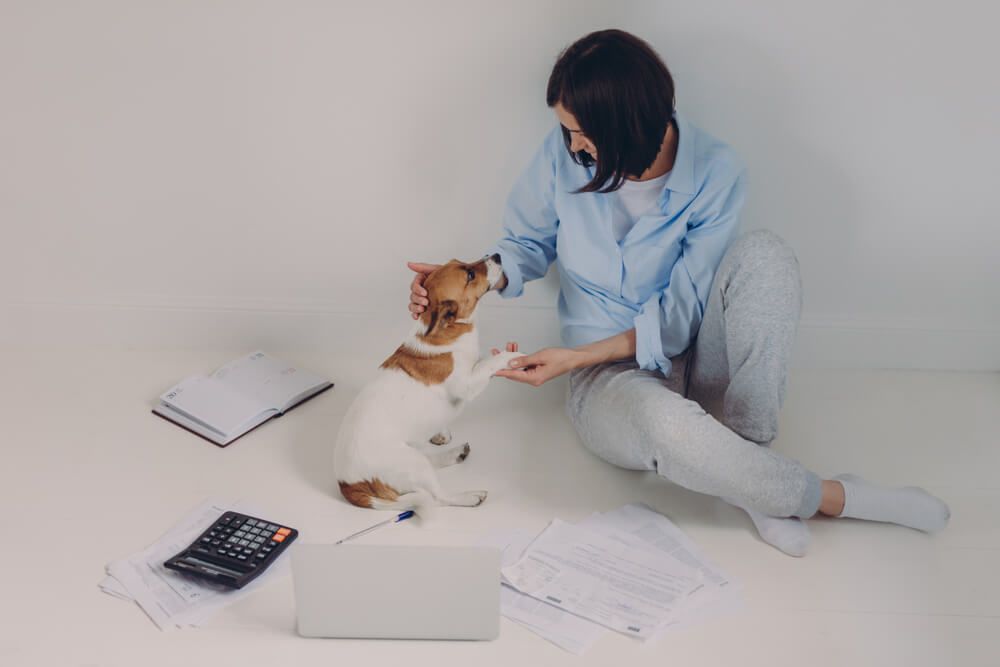
The bottom line? How much will a puppy cost?
While costs can vary widely if you rescue a dog you are looking at $2,500 – $8,000 for the first year depending on things like your reliance on dog walkers or daycare, the supplies you choose, and your pup’s health. If you are purchasing a dog, expect to spend a little more as the purchase price will be higher than the adoption fee and will not include spay or neuter surgery. You may spend over $2,000 per year on food, supplies, care, and wellness services. If you are lucky to have a dog that lives a long and healthy life, you could spend as much as $25,000 – 40,000 over the course of your pet’s lifetime. Many dog owners will agree, the love and joy you get from owning a dog are well worth the expense.
The Ollie blog is devoted to helping pet parents lead healthier lives with their pups. If you want to learn more about our fresh, human-grade food, check out MyOllie.com.
Tagged As:

The nutrition your dog needs,
the food they want.

Enjoying our articles? Subscribe our Newsletters and get new articles directly to your inbox
You might also like
20 June 2024
9 MINS READ
Owner Guide: New Puppy Checklist
Welcoming a new puppy into your life and home is an exciting time filled with “firsts,” but this magical time also requires careful planning to ensure a positive transition for your pup. Prepa…
by Ollie Pets
22 June 2023
6 MINS READ
Why Are Dogs Scared of Fireworks? How to Help Your Dog Cope With Fireworks Anxiety
Fireworks may be summer’s soundtrack, but these loud and sudden noises signal terror for many noise-sensitive pups. Learn why dogs become so rattled by fireworks and how you can help your pup fee…
4 March 2023
2 MINS READ
Tips for Organizing Your Ollie
Keep your pup’s mealtime routine neat and tidy with these organizing tips and tricks from the Ollie pack.
by Ollie Pets

